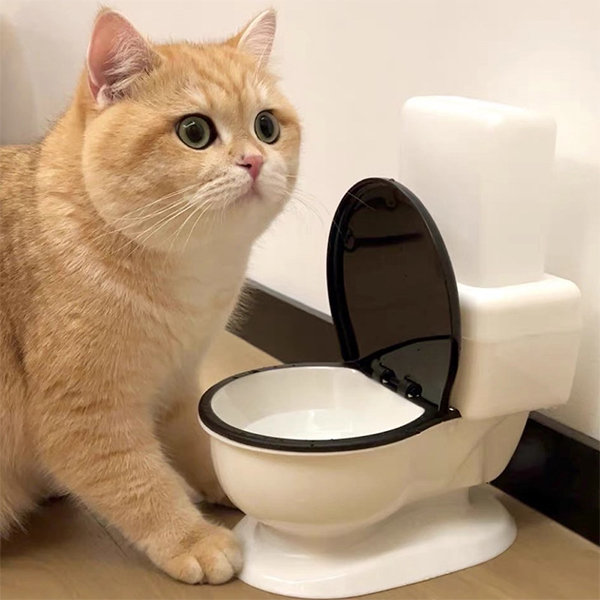Why Flushing Cat Poop Down Your Toilet Isn't a Good Idea - Advice for Safer Disposal
Why Flushing Cat Poop Down Your Toilet Isn't a Good Idea - Advice for Safer Disposal
Blog Article
Do you find yourself trying to locate tips about Can You Flush Cat Poop Down The Toilet??

Intro
As pet cat owners, it's necessary to be mindful of how we deal with our feline close friends' waste. While it may seem practical to purge cat poop down the bathroom, this technique can have detrimental repercussions for both the atmosphere and human health and wellness.
Ecological Impact
Purging feline poop presents unsafe virus and bloodsuckers into the water supply, posing a significant risk to water ecosystems. These pollutants can negatively influence aquatic life and concession water high quality.
Health and wellness Risks
In addition to environmental issues, flushing cat waste can also pose wellness threats to people. Feline feces may have Toxoplasma gondii, a parasite that can cause toxoplasmosis-- a potentially severe illness, particularly for expectant females and individuals with weakened body immune systems.
Alternatives to Flushing
Luckily, there are much safer and much more responsible means to throw away feline poop. Think about the following choices:
1. Scoop and Dispose in Trash
The most usual approach of taking care of pet cat poop is to scoop it into a naturally degradable bag and toss it in the trash. Be sure to make use of a specialized litter inside story and throw away the waste quickly.
2. Use Biodegradable Litter
Go with naturally degradable feline litter made from products such as corn or wheat. These trashes are environmentally friendly and can be safely thrown away in the trash.
3. Bury in the Yard
If you have a backyard, consider hiding feline waste in a marked location far from veggie gardens and water resources. Be sure to dig deep adequate to prevent contamination of groundwater.
4. Mount a Pet Waste Disposal System
Purchase a pet garbage disposal system particularly designed for feline waste. These systems use enzymes to break down the waste, minimizing smell and environmental effect.
Conclusion
Accountable pet ownership prolongs beyond offering food and sanctuary-- it also includes proper waste administration. By avoiding flushing feline poop down the commode and choosing different disposal methods, we can reduce our ecological impact and safeguard human wellness.
Why Can’t I Flush Cat Poop?
It Spreads a Parasite
Cats are frequently infected with a parasite called toxoplasma gondii. The parasite causes an infection called toxoplasmosis. It is usually harmless to cats. The parasite only uses cat poop as a host for its eggs. Otherwise, the cat’s immune system usually keeps the infection at low enough levels to maintain its own health. But it does not stop the develop of eggs. These eggs are tiny and surprisingly tough. They may survive for a year before they begin to grow. But that’s the problem.
Our wastewater system is not designed to deal with toxoplasmosis eggs. Instead, most eggs will flush from your toilet into sewers and wastewater management plants. After the sewage is treated for many other harmful things in it, it is typically released into local rivers, lakes, or oceans. Here, the toxoplasmosis eggs can find new hosts, including starfish, crabs, otters, and many other wildlife. For many, this is a significant risk to their health. Toxoplasmosis can also end up infecting water sources that are important for agriculture, which means our deer, pigs, and sheep can get infected too.
Is There Risk to Humans?
There can be a risk to human life from flushing cat poop down the toilet. If you do so, the parasites from your cat’s poop can end up in shellfish, game animals, or livestock. If this meat is then served raw or undercooked, the people who eat it can get sick.
In fact, according to the CDC, 40 million people in the United States are infected with toxoplasma gondii. They get it from exposure to infected seafood, or from some kind of cat poop contamination, like drinking from a stream that is contaminated or touching anything that has come into contact with cat poop. That includes just cleaning a cat litter box.
Most people who get infected with these parasites will not develop any symptoms. However, for pregnant women or for those with compromised immune systems, the parasite can cause severe health problems.
How to Handle Cat Poop
The best way to handle cat poop is actually to clean the box more often. The eggs that the parasite sheds will not become active until one to five days after the cat poops. That means that if you clean daily, you’re much less likely to come into direct contact with infectious eggs.
That said, always dispose of cat poop in the garbage and not down the toilet. Wash your hands before and after you clean the litter box, and bring the bag of poop right outside to your garbage bins.
https://trenchlesssolutionsusa.com/why-cant-i-flush-cat-poop/

I have been very taken with Don’t flush cat feces down the toilet and I am assuming you liked my blog posting. Enjoyed our review? Please share it. Help someone else discover it. Thank you so much for going through it.
Request An Estimate Report this page